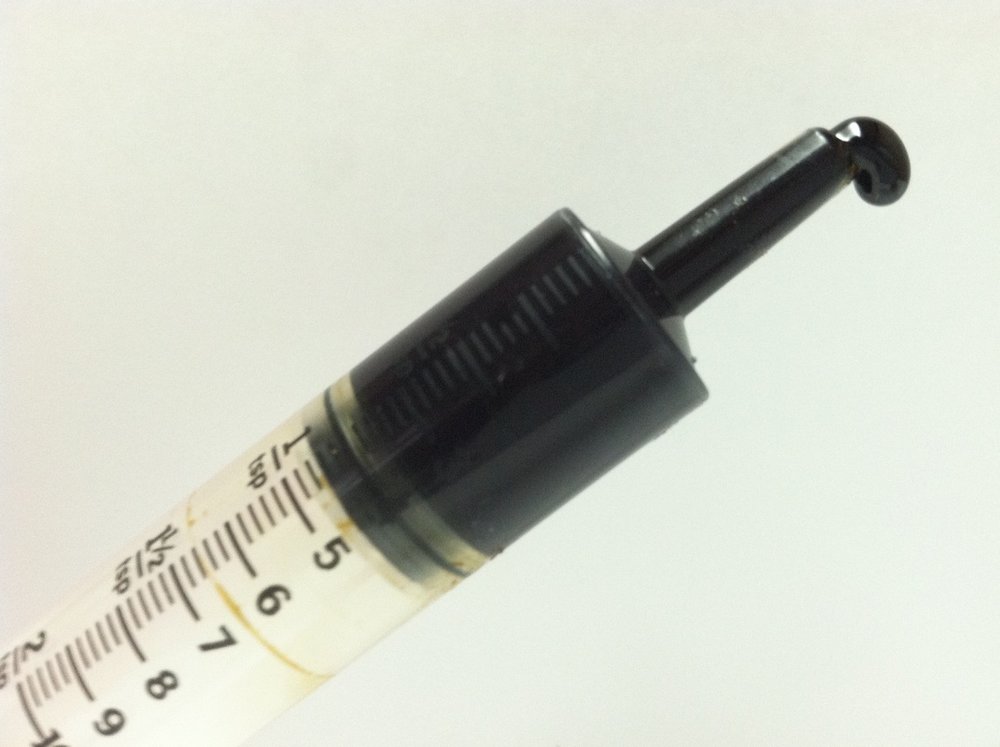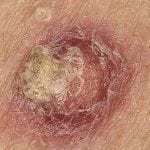Can Full Spectrum Cannabis Oil (RSO) Successfully Treat Cancer?
Dr. Donald Abrams is a cancer and integrative medicine specialist at the UCSF Osher Center for Integrative Medicine at Mount Zion.
Abrams provides integrative medicine consultations for cancer patients and has completed research into the medical use of cannabis. Abrams cautions on the use of the term cure.
“Cure is a huge word in oncology. It usually implies that the patient has survived 5 years without evidence of their cancer. We are able to cure more cancers today than we were when I began my career as an oncologist and that has been through advances in diagnosis and treatment with conventional therapies.”
Currently, the only evidence that we have regarding cannabis oil cancer-treating properties is anecdotal, Virtually all the scientific research investigating whether cannabinoids can treat cancer has been carried out using cancer cells grown in the laboratory or testing on animal models. It’s important to be cautious with these results.
However, cannabis oil cancer treatment has been proposed to alleviate many additional symptoms of cancer, including reduced appetite, chemotherapy-induced nausea and vomiting, pain and there is evidence to show that it has the ability to attenuate the disease process.
Through detailed experiments, scientists have discovered that cannabinoids exhibit a wide range of effects in the laboratory, including triggering cell death through a mechanism called apoptosis, a function that works by stopping cells from dividing.
Cannabis oil cancer therapy also shows promise in preventing new blood vessels from growing into tumors, reducing the chances of cancer cells spreading through the body by stopping cells from invading neighboring tissue and speeding up autophagy which can lead to cell death. These are detailed in the journal Nature Reviews Cancer.
The Medical Value Of Cannabis Has Been Hotly Debated For Years
So far, the best results in the laboratory using animal models have come from trialing a combination of highly purified tetrahydrocannabinol (THC) and cannabidiol (CBD).
However, researchers have also found positive results using synthetic cannabinoids such as a molecule called JWH-133, although further studies are confusing as CBD was trialed alone and researchers found that CBD may help prevent cancer from spreading.
Researchers at California Pacific Medical Centre in San Francisco reported in 2007 that cannabidiol stops cancer by turning off a gene called Id-1. The study, published in the journal Molecular Cancer Therapeutics found cancer cells make more copies of this gene than non-cancerous cells and it helps them spread through the body. The researchers studied breast cancer cells in the laboratory that had high expression levels of Id-1 and treated them with cannabidiol.
After treatment, the cells had decreased Id-1 expression and were less aggressive spreaders. At present, though data still shows contradictory results. The promise of cannabinoids as antitumour agents stems from pre-clinical research using either cultured cells derived from human or rodent tumours, or mouse tumor models.
These initial studies are insufficient to satisfy stringent criteria for recommending cannabis testing on human cancers. Cell cultures have yielded contradictory results with THC potentiating or inhibiting tumor proliferation as a function of tumor type and its pathology.
One small Phase I trial of nine patients with aggressive glioblastoma multiforme THC did not extend the lifespan of these patients.
During autophagy, cells disassemble any damaged parts they have floating around inside of them. Apoptosis can be thought of as cell suicide. During apoptosis, the cell begins to cleave or break itself into various parts.
The parts are then cleaned up by other cells in the immune system. While autophagy is often seen as a way to stave off apoptosis, cannabinoids like THC and CBD stimulate both of these processes in cancer cells when tested in animal models.
The Differences Between Malignant and Benign Cancer
In all types of cancer, the body’s cells begin to divide and spread into surrounding tissues. Unlike most benign tumors elsewhere in the body, benign brain tumours can be life-threatening.
Cancer can start almost anywhere in the body, which is made up of trillions of cells. Normally, human cells grow and divide to form new cells as the body needs them. When cells grow old or become damaged, they die, and new cells take their place. Unlike malignant tumors, benign tumors do not spread into nearby tissues. Benign tumors can sometimes be quite large.
When removed, benign tumors usually don’t grow back, whereas malignant tumors sometimes do. Oncologists, more than doctors in any other discipline within medicine, are documented to support the option of recommending cannabis as part of a treatment program for patients suffering from cancer.
Breast Cancer Treatment
There is growing scientific and anecdotal evidence showing that cannabis oil containing higher levels of cannabidiol in a ratio of 1:1 (THC/CBD) works with many kinds of aggressive cancers.
Cancers that demonstrate a positive response include breast, brain, and prostate cancer, in which high levels of ID-1 are present.
Worldwide, breast cancer comprises 10.4% of all cancer incidence among women, making it the second most common type of non-skin cancer (after lung cancer) and the fifth most common cause of cancer death. In 2004, breast cancer caused 519,000 deaths worldwide. Read more about cannabis oil breast cancer treatment
Skin Cancer Treatment
There’s a growing amount of evidence that indicates cannabis may have some effect on treating skin cancers.
Cannabinoid receptors as novel targets for the treatment of melanoma (pdf). Melanoma is a particularly aggressive form of skin cancer thought to be triggered by exposure to UV light rays which cause cells to mutate. However, melanoma can also develop on the soles of the feet or other non-exposed areas.
This form of cancer initially mutates in the skin, but If left untreated it can quickly spread throughout the body. Melanoma causes the greatest number of skin cancer-related deaths worldwide, in 2005, an estimated 59,600 Americans were diagnosed with this cancer and 7,800 died of it.
In 2008, a documentary by Rick Simpson started a renewed interest in the efficacy of cannabis oil treatment for skin cancer after he used it to successfully treat himself.
Android phone? Best viewed in landscape.
Simpson was diagnosed with basal cell carcinoma near his eye. He treated the lesion with cannabis oil he had made himself and left it for four consecutive days.
After removing the dressing, he found the affected skin had begun healing.
Skin cancer is an extremely common form of cancer, with an estimated 5.4 million cases diagnosed each year. This figure is more than the cases of colon, breast, prostate, and lung cancer combined.
How Does Skin Cancer Develop?
Skin cancer forms on the epidermis (top layer of the skin).
There are three types of cells in the epidermis: squamous cells, basal cells, and melanocytes.
Exposure to ultraviolet (UV) radiation from the sun or lights in tanning beds is a common cause of skin cancer. UV rays can cause significant damage to the DNA in your skin cells, enough damage to cause skin cancer after years of exposure.
However, skin cancer can also develop on parts of your body that don’t receive exposure to sunlight. This means that there are other factors that can put you at risk of developing skin cancer.
The evidence that has been put forward so far, despite being carried out both in vitro and in vivo (basically in test tubes and laboratory animals), regarding cannabis oil treatment for skin cancer is encouraging but not supported by large-scale scientific trials in human subjects.
This is mainly a consequence of legal restrictions on the cannabis plant, that effectively prevent studying the cancer-fighting potential of cannabis and make it a very difficult process.
Progression of cannabis oil treatment for skin cancer applied topically.
However, studies on animal models (laboratory mice), who were subject to induced skin cancer and then treated with full-spectrum cannabinoids, indicate that cannabis oil successfully reduced the size of skin cancer tumours.
This led the researchers to conclude that their results “confirm the value of exogenous cannabinoids for the prevention and treatment of melanoma”.
Studies Relating To Cannabis Oil Treatment For Skin Cancer
Cannabis oil can successfully treat skin cancer over a remarkably short treatment period.
Researchers used synthetic cannabinoids on laboratory mice over a course of 20 weeks and discovered that when cannabinoids were administered to them, skin cancer was reduced dramatically, and tumour growth was inhibited.
The study conducted by the Tokyo Metropolitan Institute of Public Health revealed that cannabis oil treatments for skin cancer were effective at reducing it by as much as 90% over a span of 20 weeks.
The cannabinoids were shown to initiate two processes that cause cell death: apoptosis and autophagy. Cannabis oil treatment and cancer proliferation Once a malignant tumour is formed, cancer cells continue to divide and multiply.
New cancer cells are continuously being replicated. These cells then rapidly spread to other tissues in the body.
Cannabinoid’s found in the cannabis plant and extracts are classified as anti-proliferative (basically stop it spreading).
Metastatis And Cannabis Oil Treatment For Skin Cancer
When cancer cells migrate through the body, the cells become metastatic.
Cancer cells break away from the original tumour and develop elsewhere in the body. Recent research discovered that cannabinoids block metastasis.
Over the past two decades, Spanish scientists at the Complutense University of Madrid have been studying the impact of cannabinoids and cancer cells, in 2012, they found that cannabinoids had an anti-metastatic effect in tumour cells.
Cannabis Oil Treatment Can Help Prevent Angiogenesis
For tumours to survive, they need blood.
Unfortunately, they take all the blood they need through a process called angiogenesis. Angiogenesis enables tumours to grow blood vessels.
This helps them grow larger and larger over time until they impede normal bodily function.
Researchers have discovered that cannabinoids inhibit this process.
Scientists from 2011 from Vanderbilt University, located in Nashville, Tennessee, demonstrated that non-psychoactive CBD is also anti-angiogenic, though it works differently from THC.
Cannabis Oil Treatment For Skin Cancer and Apoptosis
Apoptosis (from Ancient Greek ἀπόπτωσις “falling off”) is a form of programmed cell death.
Research as early as 1998 has found that cannabinoids like THC trigger apoptosis in tumour cells, meaning they die.
Currently, chemotherapy and radiation are treatments used for cancer management, but they are invasive treatments with long-term side effects.
Cannabis and cannabinoid-based pharmaceuticals are already used to manage pain and nausea associated with chemotherapy.
Hopefully, as research develops, cannabis medicines will be universally incorporated into intensive cancer treatment strategies.
Despite intensive research, prevention and early detection are the only effective measures against melanoma, so new therapeutic strategies are necessary for the management of this potentially devastating disease.
A study published in the Journal of Investigative Dermatology reported on treated mice graphed with melanoma cells using a cannabis oil preparation consisting of tetrahydrocannabinol (THC) and cannabidiol (CBD).
In the study, researchers from Italy, Spain, and England found that the combination triggered the death of melanoma cells The cannabinoids did this by facilitating the two natural processes of cell death (autophagy and apoptosis).
Human melanomas and melanoma cell lines express CB1 and CB2 cannabinoid receptors. Activation of these receptors decreased growth, proliferation, angiogenesis, and metastasis, and increased apoptosis, of melanomas in the mice.
Researchers have found that although high doses of THC can kill cancer cells they may also harm crucial blood vessel cells, although arguably this may actually help to fight cancer by preventing blood vessels from growing into a tumor,
This is detailed in a report published in 2010 by the Department of Pharmacology, University of Washington, Seattle, Washington. Using cannabis oil as a suppository can drastically reduce the psychoactive effect and increase the available cannabinoids.
It has also been found that a significant proportion of older cancer patients with no previous cannabis experience refused to continue its use because they found the psychoactive effects too unpleasant.
Further Reading
How and where to safely buy RSO medical cannabis oil online
Help and advice
If you need advice or help with Medical Cannabis, please use the contact form.
We try to answer all emails within 24 hours and are happy to help and provide advice on all aspects of Medical Cannabis treatments in complete confidence.
Disclaimer: Please note that whilst we consider ourselves subject matter experts regarding Medical Cannabis, we are not medically trained professionals. We are an information resource and there is still limited evidence that Medical Cannabis can cure all the illnesses we discuss here. We recommend you do as much research as possible, and where practical seek professional medical advice before proceeding with Medical Cannabis oil. In short, always do your homework.





